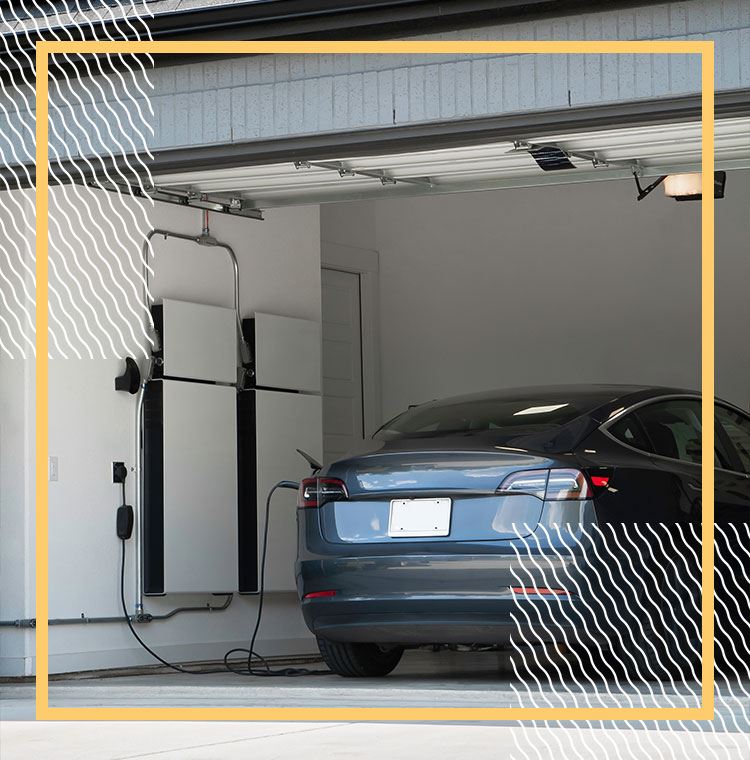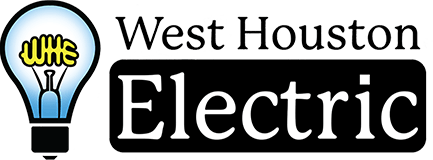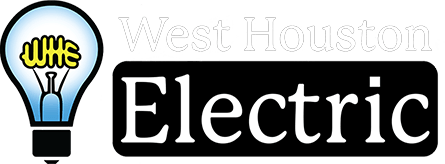
EV Charging Station Installation in Katy, TX
Best In Class Electric Vehicle Solutions in West Houston
When you make the switch to a clean electric vehicle (EV), you need a power source to keep up with your car’s electric demands. Moving forward with an EV charging station installation in Katy or West Houston can help you get the most out of your car.
At West Houston Electric, our team will install electric vehicle service equipment (EVSE) that fits your needs. As a general rule of thumb, having EVSE that can handle higher amperage will provide more mile per charge, per hour.
For example, 30-amp capacity equipment will add 30 miles per hour of charge. However, these higher amp units also require a dedicated circuit breaker so they do not disrupt the normal flow of electricity in your home.
Call (832) 925-4669 or contact us online to learn more or get started with your EV charging station installation in Katy, Cinco, or West Houston today!
What Is an EV Charging Station
A Level 2 Charging unit (also known as electric vehicle service equipment or "EVSE") are electric vehicle charging systems that connect to your home's electrical system. They speed up the charging time of a depleted EV battery from a full day to matter of hours.
Is it Worth Installing an EV Charger at Home?
Installing a home electric vehicle charger can offer several benefits, contributing to a more convenient and efficient EV ownership experience.
Here are some key advantages:
- Faster Charging: Home EV chargers, especially Level 2 chargers, provide faster charging compared to standard Level 1 chargers. This means you can recharge your EV overnight, ensuring a full battery in the morning, and you can add more miles of range in a shorter amount of time.
- Convenience: Having a home EV charger eliminates the need to visit public charging stations regularly. You can simply plug in your vehicle when you arrive home, and it will be ready to go when you need it. This convenience can be particularly valuable for daily commuting and regular short trips.
- Cost Savings: Home charging is often more cost-effective than using public charging stations, especially if you take advantage of lower electricity rates during off-peak hours. Over time, the savings on fuel costs can offset the initial investment in the charging equipment.
- Flexible Charging Schedule: With a home charger, you have greater control over when you charge your EV. This flexibility allows you to take advantage of off-peak electricity rates, making charging more economical. It also ensures your vehicle is ready to go when you need it, as you can plug in at your convenience.
- Increased Home Value: Installing an EV charger can enhance the resale value of your home, especially as electric vehicles become more popular. Potential homebuyers may see the presence of a home charger as a desirable feature, contributing to the property's overall appeal.
- Environmental Impact: EVs are generally more environmentally friendly than traditional gasoline vehicles, and charging at home can further reduce your carbon footprint. If you have access to renewable energy sources, such as solar panels, you can power your EV with clean energy.
- Incentives and Rebates: Some governments and utility companies offer incentives, rebates, or tax credits for installing home EV chargers. These financial incentives can help offset the initial costs of purchasing and installing the charging equipment.
- Reliability: Home EV chargers provide a reliable and consistent charging experience. You won't need to worry about the availability of public charging stations or potential wait times during peak hours.
- Customization Options: Home EV chargers often come with customizable settings, allowing you to tailor the charging process to your preferences. This may include scheduling charging times, setting charging limits, or monitoring energy consumption.
- Emergency Preparedness: Having a home charger ensures that your EV is always charged and ready for unexpected events or emergencies, providing peace of mind.
Before installing a home EV charger, it's essential to consider your vehicle's charging requirements, the availability of suitable electrical infrastructure, and any local regulations or permits that may be required.
What Types of EV Chargers are Available?
There are three main types of electric vehicle chargers, categorized by charging levels and speeds. Each type serves different purposes and has varying applications based on the charging needs of electric vehicles:
Level 1 Charging (120V AC):
- Description: Level 1 chargers use a standard household electrical outlet (120 volts AC) to charge electric vehicles. These chargers are typically the slowest, providing the lowest charging power.
- Charging Speed: Range from 2 to 5 miles of electric range per hour of charging.
- Use Case: Level 1 chargers are suitable for overnight charging at home and are often included as a backup option with many electric vehicles.
Level 2 Charging (240V AC):
- Description: Level 2 chargers use a 240-volt electrical supply, similar to what is used for large home appliances like clothes dryers or stoves. These chargers offer significantly faster charging compared to Level 1.
- Charging Speed: Range from 10 to 60 miles of electric range per hour of charging, depending on the charger's power output (measured in kilowatts or kW).
- Use Case: Level 2 chargers are commonly found in public charging stations, workplaces, and are suitable for home installation to provide faster charging times than Level 1.
DC Fast Charging (Direct Current):
- Description: DC fast chargers use high-powered DC electricity to charge an electric vehicle's battery directly. They provide much faster charging compared to Level 1 and Level 2 chargers.
- Charging Speed: Varies, but can deliver up to 200 miles of range in about 30 minutes, depending on the vehicle and charger specifications.
- Use Case: DC fast chargers are primarily located at public charging stations along highways, in urban areas, and at strategic locations for quick, on-the-go charging. They are designed for longer journeys where drivers need to recharge their vehicles rapidly.
What Maintenance is Required for a Home EV Charging Station?
Home EV charging stations are essential for electric vehicle owners to conveniently recharge their cars at home. To ensure the longevity and efficient operation of your home EV charging station, some maintenance is required. Regular maintenance helps prevent issues and ensures safety during use.
Here's a breakdown of the maintenance tasks you should consider for your home EV charging station:
- Visual Inspection: Periodically check the charging station for any visible signs of wear, damage, or loose components. Look for frayed wires, cracked casings, or loose connectors. If you notice any issues, it's important to address them promptly.
- Cable Inspection: Examine the charging cable for any damage, such as cuts, kinks, or exposed wires. Damaged cables can pose safety hazards and should be replaced if necessary.
- Cleaning: Keep the charging station and connectors clean from dirt, debris, and moisture. A clean station ensures a secure connection and prevents corrosion over time.
- Tighten Connections: Ensure that all electrical connections are secure. Loose connections can lead to inefficient charging or even electrical hazards.
- Firmware Updates: Some charging stations may have software or firmware that can be updated to improve performance or security. Check the manufacturer's recommendations for any available updates.
- Testing: Regularly test the charging station to verify that it is functioning correctly. Plug in your electric vehicle and monitor the charging process to confirm that it starts and stops as expected.
How West Houston Electric Can Help
The best way to take advantage of your electric vehicle is to have an electric car charging station installed in your Katy or West Houston home. This provides the greatest level of ease and convenience and will allow you to get the greatest amount of benefit out of your electric vehicle.
It’s important to trust the installation of an EV charger to a professional electrician. Level 2 EV chargers require a certain amount of amperage, as well as a special installation process. At West Houston Electric, our Katy electric vehicle charger installation experts are well-versed and consistently trained in the latest EV charging station installation techniques and processes. This ensure that we are able to offer safe, affordable, and reliable services.
We can assist you with the following:
- Ensuring your home’s electrical panel is properly equipped to handle your EV charger
- Upgrading your home’s electrical panel if needed
- Assisting you in selecting the right EV charger/EVSE for your needs
- Making sure your electric car charging station is up to code and working properly
- Conducting thorough electrical inspections to ensure the highest level of safety
We offer fair, straightforward pricing and are happy to provide an estimate upon request. We also offer electrical financing. Get in touch with us today to learn more about our electric vehicle charging station services in Katy and the surrounding areas!
Get started with your electric car charging station installation in West Houston or Katy by calling (832) 925-4669 or completing a contact form online today!
Tesla Certified Installer Partner



Make the Brighter Choice Let Us Take Charge
-
Over 30 years of Continuous Training
-
Fast Response Times
-
Convenient Specials and 0% Financing Available
-
Clean & Courteous Technicians Who Respect Your Home
-
Background Checked, Licensed & Insured
-
Estimates & Fair, Straightforward Pricing









